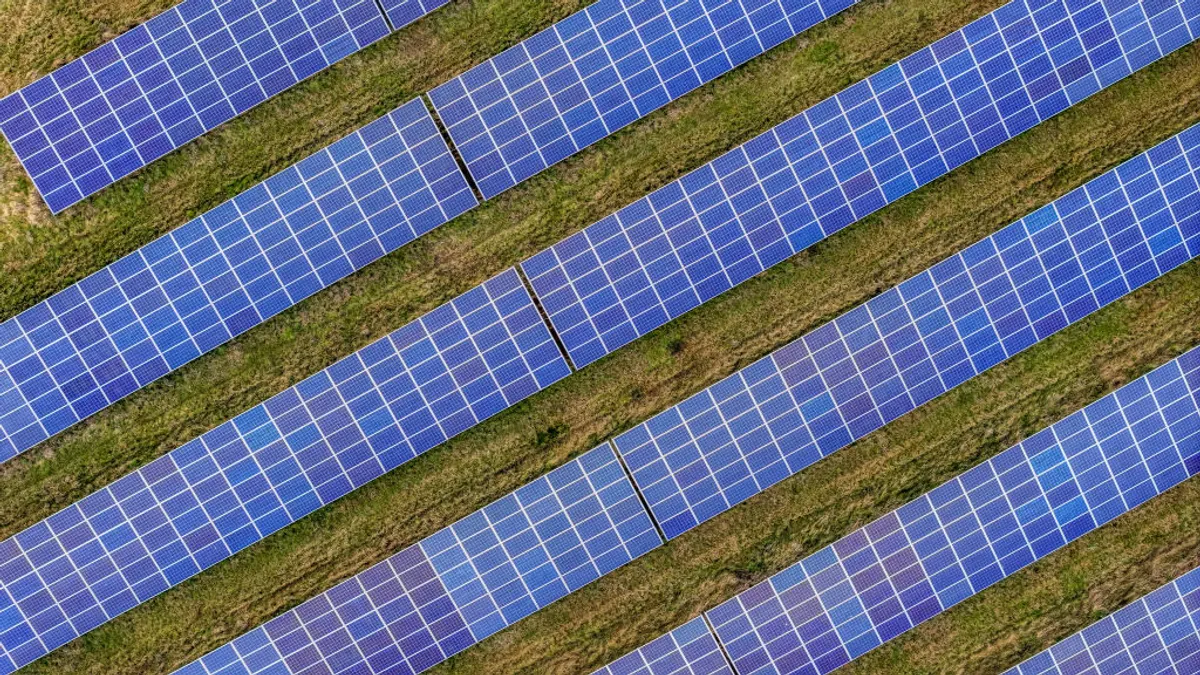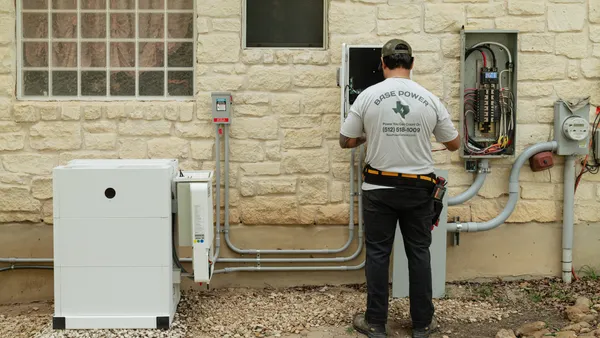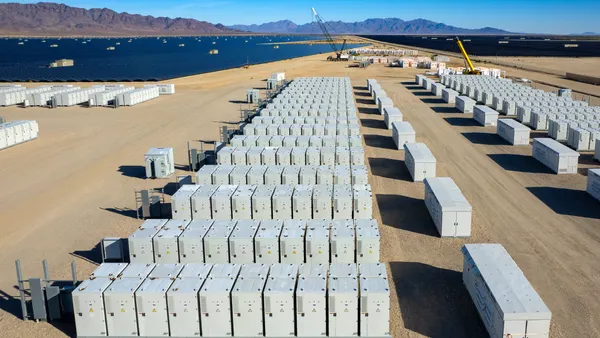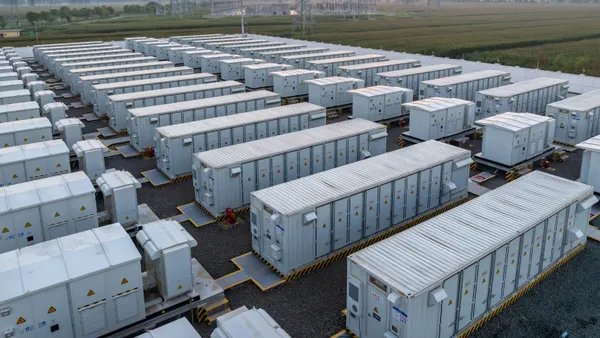Dive Brief:
- Massachusetts has selected more than two dozen energy storage projects for $20 million in funding as part of the state's efforts to modernize its electric grid, doubling its previous committment of $10 million. It is one of a few states which have formalized an energy storage goal: Massachusetts aims to procure 200 MWh of energy storage by 2020.
- The grants were awarded as part of the state's Energy Storage Initiative (ESI), and are funded by the Department of Energy Resources. The projects will draw $32 million in matching funds, and will be located in 25 communities.
- The projects include a residential project being developed by Tesla on Nantucket Island, three University of Massachusetts projects on different campuses, and other commercial and utility sector installations by names like EnerNOC, General Electric and Advanced Microgrid Solutions.
Dive Insight:
The list of projects tapped by ESI's Advancing Commonwealth Energy Storage (ACES) program is diverse, from casinos to hospitals, and WalMarts to residences, highlighting the broad range of use cases batteries can serve.
Department of Energy Resources Commissioner Judith Judson in a statement called energy storage "a strategic opportunity" for the state.
“The projects receiving funding through the ACES program will provide a roadmap for how Massachusetts can integrate storage into our diversified energy portfolio to lower overall energy costs, increase grid efficiency by decreasing peak demand, and more effectively utilize our strong clean energy sector," Judson said.
Technologies selected include batteries, flywheels, thermal storage, and pumped hydroelectric storage. Descriptions of the 26 projects to receive funding can be found here.
Borrego Solar Systems is developing a 1.5 MW/3 MWh lithium ion project at a golf ball manufacturing plant in southeastern Massachusetts that aims to "demonstrate multiple value streams." Tesla is working on a 1,044 kW/4,200 kWh lithium ion system at the Wynn Boston Harbor resort, which is currently under construction. By siting the storage at a new development, as opposed to retrofiting, the project may serve as a model for other property developers planning large-footprint developments in the state.
Tesla's SolarCity will install the company's Powerwall batteries at 500 residences on Nantucket, which will be dispatched by the utility and may help delay constructing a new, third undersea cable to bring power to the island.
EnerNOC, more known for its demand management products, will install a 2 MW/4 MWh lithium ion storage system that will also be paired with solar generation, for the Acton-Boxborough Regional School District. The project provides "diverse benefits" and is "widely replicable across municipal customers and school districts," according to the project description.
Zeco Systems, via Greenlots, will install a pair of DC fast chargers for electric vehicles at four Hannaford supermarkets. The project aims to show that rather than being an unmanaged load that could increase operating costs and overloading circuits, storage at EV charging locations can help reduce peak load, avoid demand charges and assist with renewables integration. Battery size will be 200kW/365 kWh.
The funded projects total 32 MW/85 MWh of energy storage capacity, with 16 MW/45 MWh within utility distribution company territories. The state currently has approximately 4 MW/7 MWh of advanced energy storage installed.













